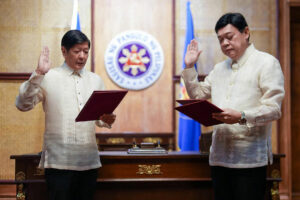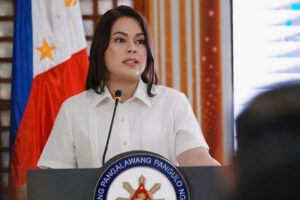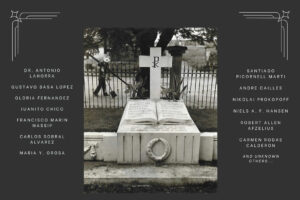Dr. Edwin Mercado, the right person to head PhilHealth

Following its controversial budget troubles, which led to the Philippine Health Insurance Corp. (PhilHealth) receiving no subsidy from the National Government, President Ferdinand “Bongbong” Marcos, Jr. appointed Dr. Edwin Mercado as the new president and chief executive officer of PhilHealth last Tuesday, replacing Emmanuel Ledesma. Dr. Mercado’s appointment cut short the term of Mr. Ledesma, who was appointed as the president and chief executive officer of PhilHealth in July 2023. Under the law, PhilHealth presidents serve for a six-year non-renewable term.
Dr. Mercado’s academic credentials and his 35 years of work experience with a national chain of healthcare facilities well qualify him for three of the key positions in PhilHealth — chief executive officer, fund manager, and medical director. He can assume all three positions. He is also going to be a great resource person and close partner of the other key person in PhilHealth — the actuary.
Edwin Mercado graduated from the University of the Philippines, College of Medicine, in 1987. He finished his orthopedic training in Philippine General Hospital. In his senior year of residency, he was chief resident and awarded “most outstanding in research.” He earned a master’s degree in Healthcare Administration from the University of North Carolina, Chapel Hill, and another master’s degree in Medical Science in Global Health Delivery from the Harvard School of Medicine.
While he has published studies on bone graft substitutes and fracture treatment, he has also focused on health economics and delivery models to comply with the Philippine Universal Health Care (UHC) Law and coordinated with PhilHealth and local government units for these studies.
Dr. Mercado’s research topics are on Public-Private Partnerships for primary care clinics and universal healthcare public financial systems in the Philippines. He is also assessing the understanding and acceptance of the UHC implementing rules among provider, payer, and regulator stakeholders.
Dr. Mercado brings with him a wealth of experience in hospital management. He is the vice-chair of Mercado General Hospital, Inc., a national chain of healthcare facilities that includes four general hospitals, six multi-specialty clinics, two surgery centers, 150 primary care corporate clinics, and more.
He has also worked with the Department of Health (DoH) and the Zuellig Family Foundation. He is also a faculty lecturer at the Ateneo School of Medicine and Public Health, as well as a guest lecturer at the University of the Philippines College of Public Health.
I have asserted in previous columns that PhilHealth does not have the experts that a health insurance company should have in order to be viable. These experts are an actuary, a fund manager, a medical director, and a capable overall administrator.
The health insurance actuary is responsible for assessing future financial risk in healthcare. He calculates the cost of healthcare based on reported health data, like the DoH morbidity rates and the rate of increase of the cost of medicines and services. He should have at least a master’s degree in Actuarial Science and at least one year experience in dealing with the measurement and management of risk in the healthcare field.
We had asked the PhilHealth actuary for her resume. In spite of follow-ups, we never received it.
The fund manager is responsible for making the funds — the aggregate premiums paid by the people insured — grow by implementing investment strategies. The typical fund manager possesses a minimum of a bachelor’s degree in economics, finance, and business. He may have gone through advanced studies in financial management. A significant experience as a trader in a bank would be a plus.
The senior vice-president for fund management of PhilHealth did not go through advance studies in financial management and had not worked in a financial institution in any capacity.
The immediate past president, Mr. Ledesma, had earned a master’s degree in Business Management, major in Finance, Accounting, and Management Strategy from Northwestern University, Chicago. He had worked for financial institutions — as managing director of an offshore bank and as vice-president of an investment bank. He could have been both president and fund manager. But he was more inclined towards administration. That may account for his allowing the diversion of P89.9 billion of PhilHealth’s money to the government’s unappropriated programs.
Mr. Ledesma’s experience as managing director of an offshore bank, vice-president of an investment bank, and president of Power Sector Assets and Liabilities Management, did not qualify him for the position of chief executive officer of a complex and far-flung operation.
The medical director assists in the development of health insurance policies, analyzes medical data to identify risk factors and trends that could impact underwriting decisions, works with the actuary to develop risk profiles, and provides expert opinions on complex claims involving medical conditions or treatments.
He serves as a liaison between healthcare providers and the insurance company. He formulates the policies in the hiring of claims adjusters and develops their training program. He must be a doctor of Medicine with experience working in a clinical setting and as an administrator.
None of the top executives of PhilHealth is designated Medical Director or carries any title suggestive of the performance of the functions described above.
Because of PhilHealth’s tremendous responsibility — 100 million Filipinos are insured with it, it has 17 regional offices, five branches and 101 local offices strategically located nationwide, and more than 7,800 employees — someone who has been president or chief operating officer of a company with regional offices would be ideal to head PhilHealth.
Dr. Mercado, having been part of the Mercado national chain of healthcare facilities and having earned a master’s degree in Healthcare Administration, is very well qualified to be chief executive officer of PhilHealth.
As part of top management of the Mercado chain of healthcare facilities, Dr. Mercado must have participated in the management of the funds generated by the chain, making him knowledgeable in fund management. Again, as part of top management of the chain, he must have performed the functions of a medical director described above.
With his possession of a prodigious amount of morbidity data accumulated personally during his 35-year experience as a practicing surgeon, and as part of the management team of the Mercado chain of healthcare facilities, he can identify risk factors and trends that would help the actuary develop risk profiles.
Dr. Mercado’s credentials exceed those required by the position of chief executive officer of PhilHealth. Not only does he have a master’s degree from Harvard and conducted studies on health economics and delivery models to comply with UHC Law, he coordinated with local government units for these studies.
He has done research on private public partnerships for primary care clinics and on UHC public financial systems. He is also assessing the understanding and acceptance of the UHC implementing rules among provider, payer, and regulator stakeholders. I predict he will soon discover the monumental mistake of RA 11223, that of assigning an insurance company to finance universal healthcare.
All those also make him suitable for the position of Secretary of the Department of Health. Dr. Teodoro “Ted” Herbosa, the current health secretary, is also a graduate of the UP College of Medicine. He completed an international diploma course in emergency and crisis management from the University of Geneva in Switzerland and finished his post-graduate studies at the Sackler Faculty of Medicine of the Tel Aviv University in Israel.
He was the Health Undersecretary from 2010 to 2015. He led the modernization of public hospitals through Health Facilities Enhancement Funds and the Public-Private Partnerships.
Dr. Herbosa has extensive experience in Trauma Surgery and Disaster and Emergency Medicine. In the University of the Philippines, he started the Fellowship Program for Trauma Surgery and the Residency Program in Emergency Medicine.
He has also held several international posts. He was a Professor of Emergency Medicine at Universiti Kebangsaan Malaysia from 2007 to 2010. He created the Center for Research in Emergency Medicine and produced the first batch of Masters graduates in Emergency Medicine. He was an International Associate for Johns Hopkins University, implementing the Hospital Preparedness for Emergencies course and the USAID-funded PEER Program.
A comparison of the credentials of the two doctors shows that Dr. Mercado’s sphere of knowledge and interest in the world of healthcare is larger than that of Dr. Herbosa. Dr. Mercado thinks of global health delivery, private public partnerships for primary care clinics, and UHC public financial systems.
Dr. Herbosa has referred to himself as an emergency room doctor and therefore a quick decision maker. In 2023, upon his appointment as DoH secretary, he said he wants to “digitize” (I think he meant “digitalize”) and make the DoH very efficient in delivering healthcare and to be able to monitor results quickly. It is obvious he is oblivious of the lack of both communication and healthcare facilities in many parts of the country.
The appointment of Dr. Edwin Mercado as head of the DoH would be celebrated. He would put in order the UHC lawmakers seeking re-election who had improvised to be able to present the law to the electorate in the election of 2019.
Oscar P. Lagman, Jr. is a former COO of a health insurance company. He had also been part of many USAID-funded projects in healthcare, including the organization of the universal healthcare program of the Province of Bukidnon.




